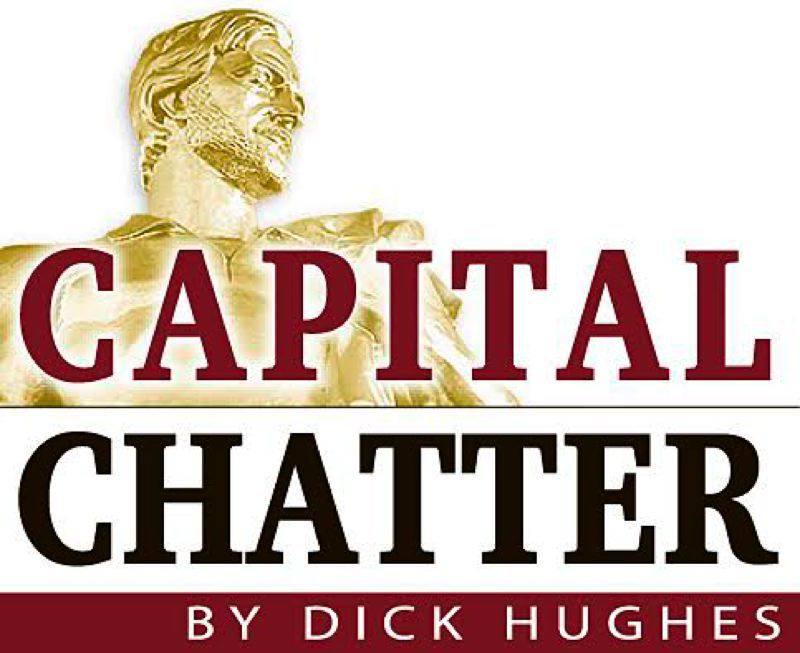Capital Chatter: What if we had an eclipse and nobody came?
Published 7:00 am Thursday, August 17, 2017

- Capital Chatter: All sides waiting for Brown to lead
Extra ambulance crews are stationed throughout Oregon in the path of Monday’s total solar eclipse. Fire departments are outfitting motorcycles with paramedics and EMTs so they can weave through traffic jams. State Police detectives are returning to patrol. The Oregon National Guard, already fighting wildfires, is prepared to direct traffic. With clogged roads predicted for Sunday and Monday, hospital staffs are sleeping in their offices to ensure they can be at work on Monday. And now, campfires are banned in all Oregon State Parks and coastal beaches.
Is the great solar eclipse of 2017 — the first one visible in the mid-continental U.S. since before Al Gore invented the internet — worth more than a year of preparation by emergency managers in Oregon? Or is this hype?
I put that question — minus the quip about Al Gore — to Andrew Phelps, who directs the Oregon Office of Emergency Management.
“This is a pretty unusual event. We haven’t had a full, total solar eclipse visible in the mid-continental United States since 1979,” Phelps said. “As for emergency management, I don’t think there’s such a thing as over-planning.
“I think if on Aug. 22nd, folks are scratching their heads, saying, ‘Well, gosh, nothing bad happened during the eclipse. Why did we spend all this time planning for it,’ I think that’s a victory as far as we’re concerned. I don’t think we can over-plan for the possibility of a million extra visitors coming into Oregon.”
• Buehler’s big bucks: It was odd timing when Rep. Knute Buehler, R-Bend, announced early this month that he was running for Oregon governor in 2018. The dog days of summer are not when potential voters pay attention to politics. But Buehler told me he made the announcement to end speculation and to assure potential campaign workers that he was serious about running.
He picked up a $500,000 donation this week from Nike co-founder Phil Knight. That certainly increases the seriousness factor of Buehler’s campaign.
Buehler expects to conduct the traditional campaign-opening tour around the state sometime this fall, possibly in late October. He seeks to position himself as a “post-partisan” candidate — someone who is defined not by political labels but by doing what is best for Oregon.
• Where was the confidentiality? The lack of confidentiality was the first thing that hit me when I showed up at the Broadway Commons this week to begin having part of my 2014 taxes audited by the Oregon Department of Revenue. Several audit interviews were happening in the same room at the same time.
It turns out that the department has been conducting the so-called “efficiency and presence” audits at locations around Oregon for at least 10 years. The efficiency is having one location with multiple auditors deployed. The presence is making it more convenient for taxpayers to meet with an auditor face-to-face.
The auditors are supposed to keep the clients engaged so they’re not hearing other conversations in the room.
I don’t see how that can work, even though the three auditors in my room were spread out. I won’t repeat what I heard one couple say — I don’t want to compromise their expectation of confidentiality — but the auditor was lecturing them on the importance of keeping diligent records about his travels to a worksite different from his main work location.
Audits result in a small fraction of Oregon’s income tax revenue, according to data that the Department of Revenue presented this year to the Legislature. Lawmakers have prodded the department both to increase legitimate collections and to vastly improve customer service. Those might be contrary goals.
Like the couple I mentioned above, my wife and I are being audited for business-related expenses we reported on our 2014 tax returns. That is a prime area for Oregon Revenue auditing as the department often finds a lack of compliance, either by companies or by individuals who report out-of-pocket expenses.
With multiple auditors and multiple rooms rented at Broadway Commons in Salem, the department had 72 interviews scheduled each day. The department paid $1,200 in rent for the third-floor space. I find it ironic that the main Revenue office building in Salem was not well-designed for one-on-one interviews.
(Former Revenue employees also told me the building’s winter heating was expected to come from the heat generated from having so many computers in use. But as computers became more technically efficient, they generated less heat as a byproduct, and employees got colder during the winter. But I digress …)
The auditor with whom I met was professional and personable, not accusatory or intimidating. I gave her a bunch of paper to examine – at least one hundred pages and perhaps two.
Here’s a tip I learned from spending days downloading and printing tax records: When you put your taxes together each year, download or otherwise save a copy of every conceivable item you might ever need. Don’t count on your employer, financial institution, merchant or anyone else to have those records easily available. Many companies limit how long they keep records online … or, as I discovered, at all.
Dick Hughes has been covering the state’s political scene since 1976. Contact him at TheHughesisms@Gmail.com or follow him at Facebook.com/Hughesisms.





